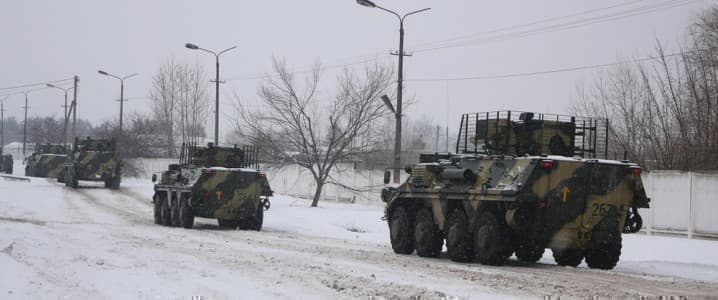Broken global supply chains, runaway inflation, energy shortages, and rising commodity prices. These conditions were present even before Russia invaded Ukraine. Now, everything seems to be getting worse at once. How long until things go back to normal? Geopolitical strategists have been hypothesizing about how the war could end for the purposes of oil market analysis. The important question is whether it would end sooner rather than later. Unfortunately, it is difficult to answer this question since the answer depends on multiple factors. Yet there is an even more important question than that: will things ever go back to normal?
According to some observers, they will. Energy analyst Michael Lynch, for example, wrote in a recent article for Forbes that sooner or later, the war will end, and the oil market will return to normal, with prices declining to a more palatable level.
Among the developments he expected, Lynch listed the lifting of Western sanctions on Russia and, consequently, a pretty much full snap-back to how the energy world operated before the war.
However, the West has indicated that sanctions will not be lifted just like that. In fact, the U.S. Secretary of State, Anthony Blinken, said that even if Russia decides to pull out of Ukraine, the U.S. would not lift sanctions. Moscow would, Blinken said, need to provide assurances it would never again invade Ukraine.
Russia has made it clear that it has no intention of pulling out or providing non-invasion assurances at this point, so it would be safe to say that sanctions will remain in place for the observable future.
Related: Mid-Cap Energy Stocks Are Outperforming Supermajors
The longer the current situation lasts, the more likely it would be to lead to some irreversible changes, such as Europe leaning increasingly on LNG rather than pipeline imports and Russia leaning increasingly on Asia for its energy exports. And oil and gas prices will remain elevated for longer.
This also seems to be the case in the hypothetical scenario laid out by Forbes’ Lynch, in which sanctions are lifted this year. Despite the resulting return of Russian barrels to Western markets, Lynch noted, OECD oil inventories are 300 million barrels down from the five-year average, which means prices would remain relatively high until these inventories are replenished.
As prices fall, demand will strengthen further despite the fact it would still be quite high. As Lynch put it, “Americans love to burn petroleum on the highways.” And it won’t be just Americans.
Right now, EV sales are on the rise despite higher prices caused by shortages of battery materials. Global EV sales in the first quarter, Reuters reported, soared by close to 120 percent. Yet this was just the beginning. Prices have higher to go still, and EVs could become scarce.
The CEO of Rivian said this week that compared to the battery shortage looming on the EV horizon, the chip shortage would look like “a small appetizer” to the industry. “Semiconductors are a small appetizer to what we are about to feel on battery cells over the next two decades,” RJ Scaringe told the Wall Street Journal, adding that “90% to 95% of the supply chain [for battery cells] does not exist.”
What this means for oil demand is that it will increase further. In a hypothetical scenario where the war in Ukraine is over by the end of this year, we would likely see demand snap back exactly the way it snapped back after the pandemic. More accurately, it will grow as fast as demand grew after the pandemic. The war doesn’t seem to have destroyed much demand for oil so far, only shifted the supply patterns. Oil, therefore, will remain dominant, even at higher prices.
By Irina Slav for Oilprice.com
More Top Reads From Oilprice.com:
- The Odds Of A Nuclear Deal With Iran Are Shrinking Every Day
- U.S. Exports Oil From SPR Release: Report
- Institutional Investors Just Can’t Quit Coal



















And while the global demand for oil will continue unabated even more so than before the conflict, it will undergo some permanent changes. First the era of cheap oil and energy prices is over. Second, Russian energy dominance would be acknowledged worldwide and third the market will continue to be tight well into the future with a shrinking global spare oil production capacity a permanent feature of the market.
And while global energy transition will continue to be a fixture of the global energy scene, it won’t progress much beyond being a fixture.
Dr Mamdouh G Salameh
International Oil Economist
Visiting Professor of Energy Economics at ESCP Europe Business School, London